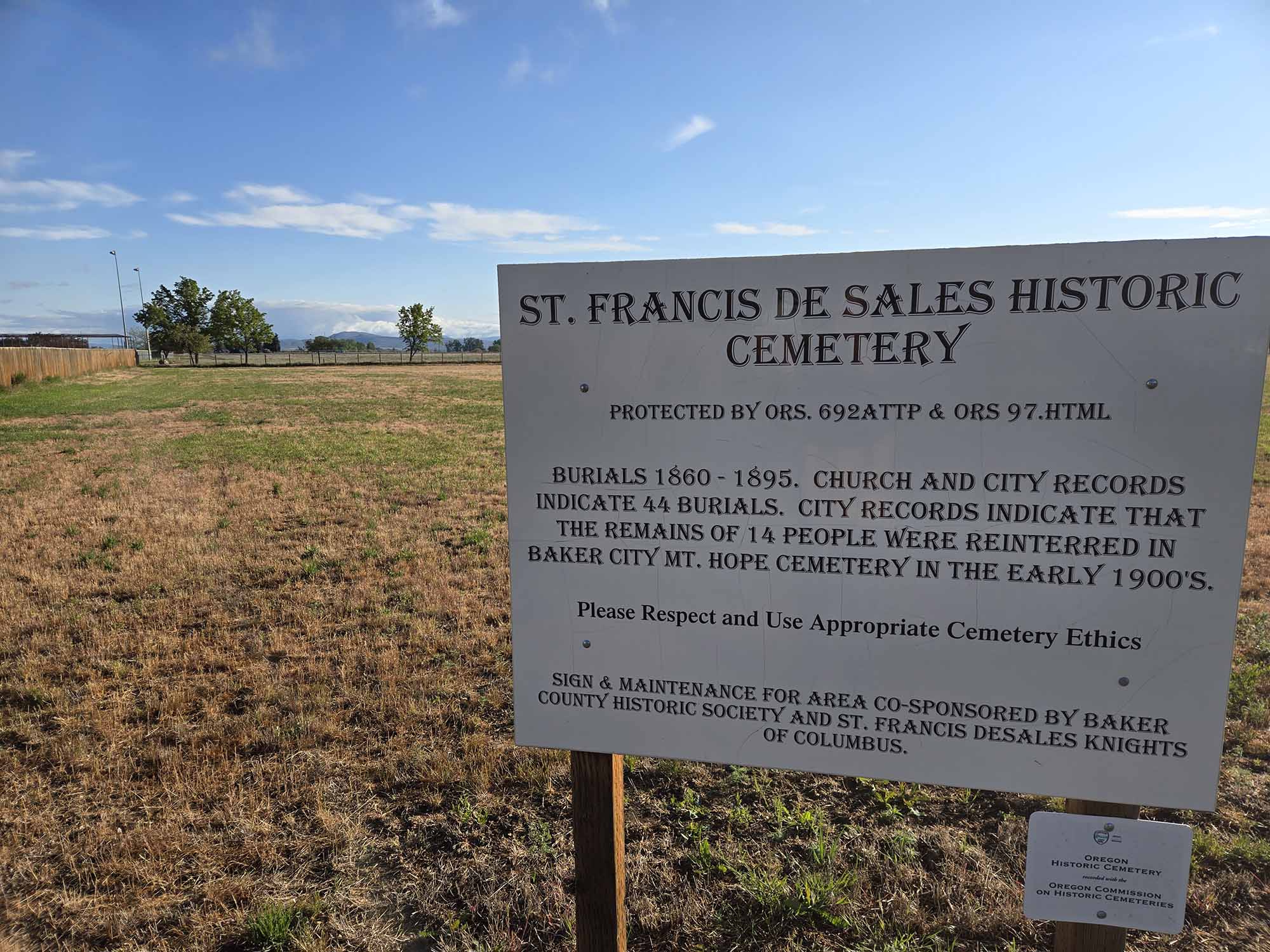‘Tis the season for scams, local police warn
Published 7:48 pm Thursday, December 4, 2008
The Baker County Sheriff and Baker City Police are warning community
residents to be wary of offers that sound too good to be true.
Con artists, who operate throughout the year, become especially active during the holiday season, they say.
The latest scam to hit the area involves buyers of items sold over the Internet.
In at least four instances last month, Baker City residents were
targets of this particular scam, said Sheriff Mitch Southwick. And in
one case, money was lost to the con artist.
Here’s how the most recent scam works, Southwick said:
The swindler will contact a person offering an item for sale over the
Internet and send a fraudulent check or money order for more than the
buyer was asking for the item. The buyer will then ask the seller to
cash the check or money order and send the additional money on to a
third party to handle the shipping expenses.
But that’s not a good idea, the sheriff cautions. He urges those
encountering such an offer to keep any additional money until the check
clears or the money order is proven authentic. Otherwise, the extra
money will go to the scam artist and the bank will look to the seller
to make good on the bad check or money order, Southwick said.
Detective Jay Lohner of the Baker City Police Department advises people
to use common sense when they receive an offer that sounds too good to
be true.
“As long as there’s going to be one person out there who’s gullible,
they’re going to keep on doing it,” he says of the scammers.
“You’re not going to get something for nothing is the bottom line,”
Lohner says. “No credible person – unless it’s Bill and Melinda Gates –
who’s going to give up something for nothing.”
Tamara Uriarte received just such an offer this week through her property management business, Premiere Management Services. Uriarte also operates the Open Door Christian Supply Store.
In e-mails claiming to be from the Bank of Africa, she was notified that a “Mrs. Kate Santos” had asked the bank to transfer $3.2 million from her bank account in Africa to Uriarte’s Baker City bank account. She said the money was to be used to build houses for the homeless, something she says she would wholeheartedly support.
In order to receive the money, Uriarte was directed to complete a “Pre-remittance Form TT727” and return it “via fax or e-mail attachment with a copy of your international passport or citizen identity card.”
Unfortunately, these scams are designed to make withdrawals from bank accounts, not deposits, the sheriff warns.
Uriarte says she is sensitive to con artists, having lost $10,000 from her business in Salt Lake City in a similar scam 10 years ago.
In this case, Uriarte conducted a Google search on the Internet for the Bank of Africa and found that it has been identified in connection with scams.
Uriarte responded to several e-mails and planned to set up a bank account to use in the hope of catching the people involved.
“I’m really angry at these kind of people,” she said. “They just suck everybody dry.”
And she’s especially concerned about others in the community who don’t have the benefit of her unfortunate experience who might be quick to act on such an offer.
The best action to take in these cases, the sheriff says, it to simply delete the messages and make no response. There is little law enforcement can do, even at the federal level, to track the scammers because they send out so many of these offers on a daily basis.
“I even get those on my e-mail (at the Sheriff’s Office),” Southwick said.
He also advises community residents to carefully consider which organizations they donate to during the holidays.
The Department of Justice’s Charitable Activities Section offers this advice:
n Resist the urge to donate impulsively to callers identifying themselves as local police or firefighters. Call the local organization mentioned by the telemarketer and verify the claims.
andbull; Be careful about pledges a caller claims you made but you don’t remember. If you have doubts, check your records.
andbull; Do not succumb to pressure. No legitimate organization will insist that you contribute immediately.
andbull; Be careful not to give personal information such as your Social Security number or mother’s maiden name to anyone soliciting over the telephone.
More information is available by calling 971-673-1880 or visiting this site:
www.doj.state.or.us/charigroup/index.shtml
The Sheriff’s Department’s Web site also offers advice about how to avoid identity theft at: www.bakersheriff.org/idtheft.htm





